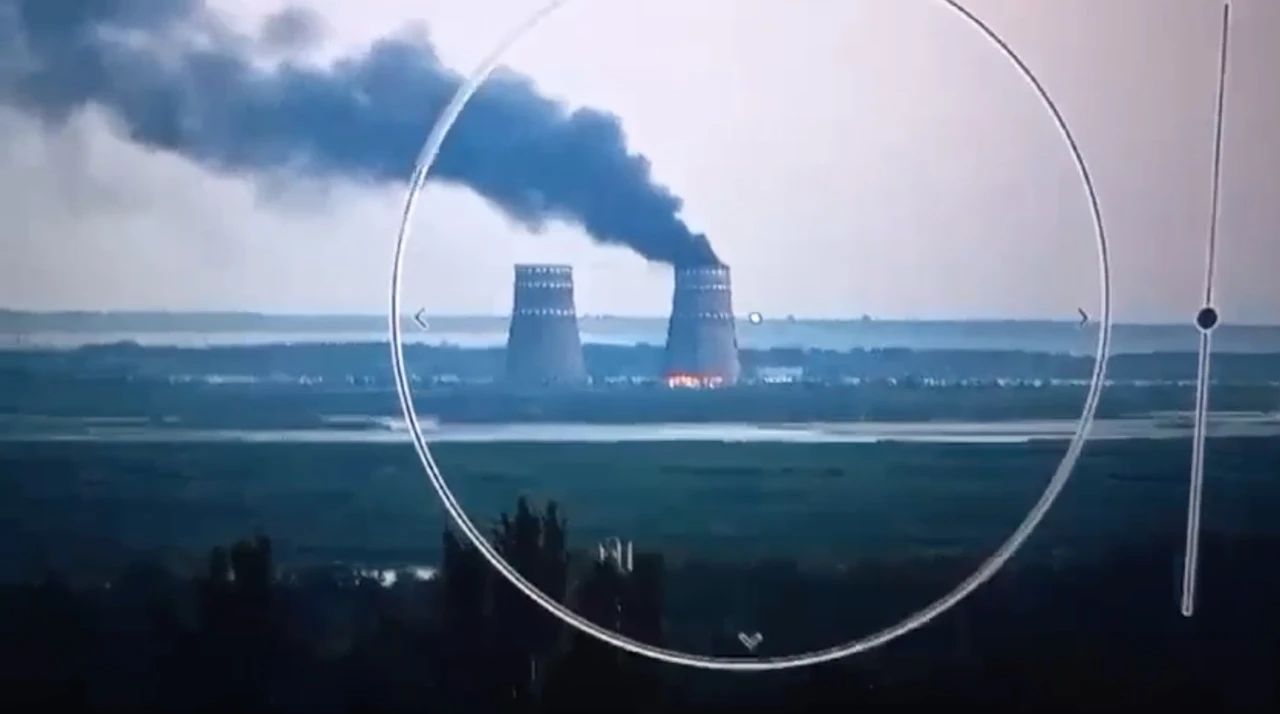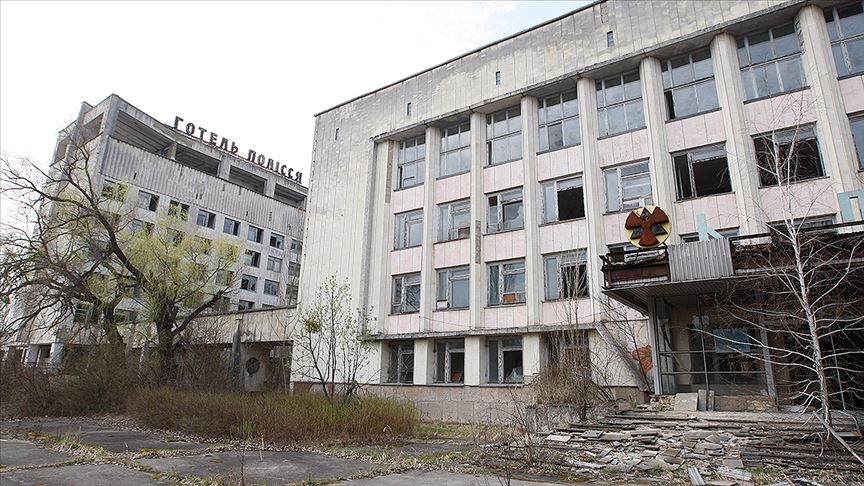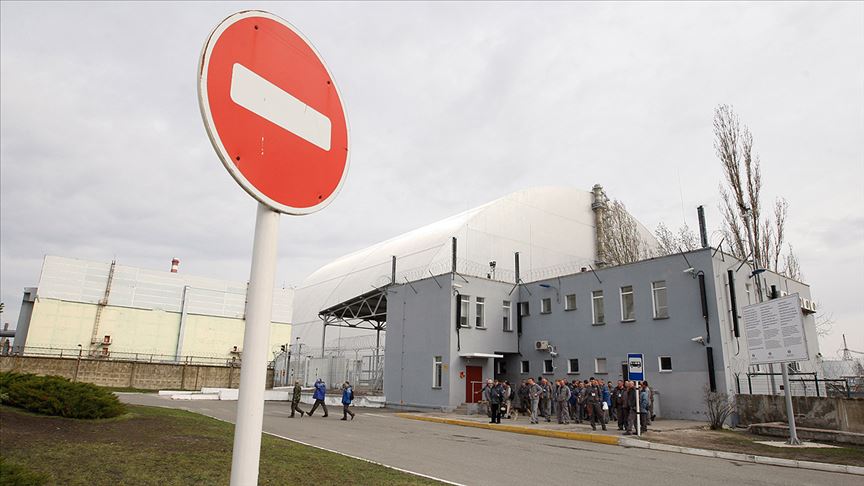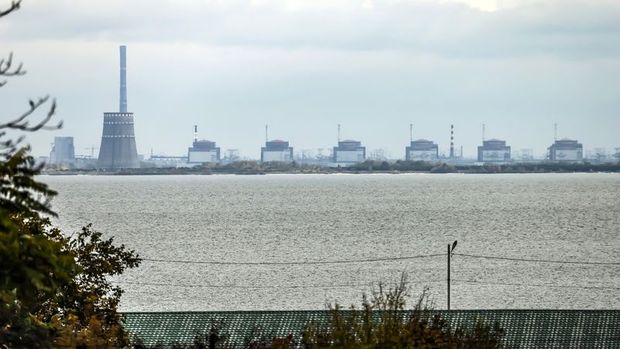How will a possible Zaporizhzhia nuclear plant disaster affect Türkiye?
 A screenshot from a video released by Ukrainian President Volodymyr Zelenskyy shows a fire broke in Zaporizhzhia nuclear power plant in Zaporizhzhia, Ukraine on August 11, 2024.
A screenshot from a video released by Ukrainian President Volodymyr Zelenskyy shows a fire broke in Zaporizhzhia nuclear power plant in Zaporizhzhia, Ukraine on August 11, 2024.
The recent fire at the Zaporizhzhia Nuclear Power Plant in Ukraine has captured global attention as tensions between Ukraine and Russia continue to escalate. But, will this incident have a potential impact on Türkiye?
Both countries are pointing fingers at each other for the cause of the fire.
Despite reassurances from officials that radiation levels remain within normal ranges, the potential dangers in the area have sparked widespread concern.
Implications for neighboring countries like Türkiye
The possibility of a nuclear disaster has become a significant topic of discussion, particularly in countries near Ukraine, such as Türkiye. The question on many minds is: what could happen if the Zaporizhzhia plant were to experience a catastrophic explosion?
Lessons from Chernobyl, potential situations
The Chernobyl disaster serves as a grim reminder of the severe consequences that nuclear accidents can have. Should an explosion occur at the Zaporizhzhia plant, it could result in the release of radioactive materials into the atmosphere.
Depending on wind patterns and weather conditions, these radioactive particles could travel to neighboring regions, including Türkiye’s Black Sea area, which is among the most vulnerable to such fallout.


Radiation risks
The extent to which radiation might reach Türkiye would largely depend on the prevailing weather conditions at the time. Historically, nuclear explosions have had devastating impacts, with the potential to cause tens of thousands of deaths and contaminate vast areas.
The aftermath of the Chernobyl incident, which saw heightened radiation levels in Black Sea countries, underscores the possible risks.
Experts warn that a similar event could lead to the contamination of crops and adverse health effects in Türkiye – particularly in the Black Sea region. However, the severity of these impacts would hinge on factors such as the explosion’s magnitude, the effectiveness of preventive measures, and current weather conditions.


Preparedness, response in face of nuclear threats
While nuclear power plants are designed with stringent safety measures, they are not immune to risks stemming from human error, natural disasters, or military actions.
An explosion could disperse radioactive materials widely, posing a significant radiation threat.
The health implications could range from increased cancer risks due to radiation exposure to long-lasting environmental damage.
Türkiye’s response to a potential nuclear crisis
In the event of such a crisis, Türkiye would likely implement its established radiation monitoring and emergency protocols to safeguard public health.
Residents in the Black Sea region might face the need for evacuation, as well as the adoption of protective measures against radiation and contamination.
Efforts to protect agricultural products and water supplies would also be essential to mitigating the disaster’s impact.



